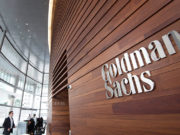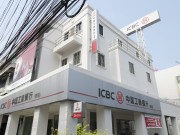Interactive Brokers Lost $48 Million from New York Stock Exchange Technical Glitch with Clients Placing Orders to Buy Warren Buffett Berkshire Hathaway at $185 Per Share But Buy Trades Were Executed at Around $700,000, Interactive Brokers Filing for NYSE Claims Were Rejected, NYSE Glitch on 3rd June 2024 Monday for 45 Minutes Starting from 945 am Caused Share Prices Including Warren Buffett Berkshire Hathaway to Decrease -99%, 40 Company Shares Affected Include Bank of Montreal, Barrick Gold, Nuscale Power & Chipotle Mexican Grill
27th June 2024 | Hong Kong
Interactive Brokers had lost $48 million from New York Stock Exchange (NYSE) technical glitch (3/6/24) with clients placing orders to buy Warren Buffett Berkshire Hathaway at $185 per share but buy trades were executed at around $700,000. Interactive Brokers filing for NYSE claims were rejected. A New York Stock Exchange (NYSE) technical glitch (3rd June 2024 Monday) for 45 minutes starting from 945 am had caused share prices including Warren Buffett Berkshire Hathaway to decrease -99%. 40 company shares were affected by the NYSE technical glitch, including Bank of Montreal, Barrick Gold, Nuscale Power & Chipotle Mexican Grill. The software update was released by Consolidated Tape Association (CTA), which published real-time stocks prices. The bad trades were cancelled subsequently. In 2024 March, Nasdaq had a nearly 3 hours technical glitch which disrupted premarket trading on Monday (18/3/24) between 409 am to 703 am New York time, with unacknowledged orders cancelled. In 2023 December, Nasdaq also had a technical glitch (system error) with orders cancelled & incorrect clearing information processed. In 2023 December, the United States Department of Treasury fined Nasdaq $4 million for violation of sanctions by processing payments with Iran state-owned bank Mellat through previously owned Armenian Stock Exchange (Nasdaq OMX Armenia) and earning $16,000 in fees until 2014. Nasdaq identified & self-reported the violations to the United States Office of Foreign Assets Control (OFAC) and subsequently divested Nasdaq OMX Armenia.
“ Interactive Brokers Lost $48 Million from New York Stock Exchange Technical Glitch with Clients Placing Orders to Buy Warren Buffett Berkshire Hathaway at $185 Per Share But Buy Trades Were Executed at Around $700,000, Interactive Brokers Filing for NYSE Claims Were Rejected, NYSE Glitch on 3rd June 2024 Monday for 45 Minutes Starting from 945 am Caused Share Prices Including Warren Buffett Berkshire Hathaway to Decrease -99%, 40 Company Shares Affected Include Bank of Montreal, Barrick Gold, Nuscale Power & Chipotle Mexican Grill “
New York Stock Exchange Technical Glitch on 3rd June 2024 Monday for 45 Minutes Starting from 945 am Caused Share Prices Including Warren Buffett Berkshire Hathaway to Decrease -99%, 40 Company Shares Affected Include Bank of Montreal, Barrick Gold, Nuscale Power & Chipotle Mexican Grill, Software Update Released by Consolidated Tape Association Which Published Real-Time Stocks Prices, Bad Trades Were Cancelled Subsequently

6th June 2024 – A New York Stock Exchange (NYSE) technical glitch (3rd June 2024 Monday) for 45 minutes starting from 945 am had caused share prices including Warren Buffett Berkshire Hathaway to decrease -99%. 40 company shares were affected by the NYSE technical glitch, including Bank of Montreal, Barrick Gold, Nuscale Power & Chipotle Mexican Grill. The software update was released by Consolidated Tape Association (CTA), which published real-time stocks prices. The bad trades were cancelled subsequently. In 2024 March, Nasdaq had a nearly 3 hours technical glitch which disrupted premarket trading on Monday (18/3/24) between 409 am to 703 am New York time, with unacknowledged orders cancelled. In 2023 December, Nasdaq also had a technical glitch (system error) with orders cancelled & incorrect clearing information processed. In 2023 December, the United States Department of Treasury fined Nasdaq $4 million for violation of sanctions by processing payments with Iran state-owned bank Mellat through previously owned Armenian Stock Exchange (Nasdaq OMX Armenia) and earning $16,000 in fees until 2014. Nasdaq identified & self-reported the violations to the United States Office of Foreign Assets Control (OFAC) and subsequently divested Nasdaq OMX Armenia.
Nasdaq 3 Hours Technical Glitch Disrupted Premarket Trading on Monday 18th March 2024 Between 409 am to 703 am New York Time, Unacknowledged Orders are Cancelled

19th March 2024 – Leading stock exchange Nasdaq had a nearly 3 hours technical glitch which disrupted premarket trading on Monday (18/3/24) between 409 am to 703 am New York time, with unacknowledged orders cancelled. In 2023 December, Nasdaq also had a technical glitch (system error) with orders cancelled & incorrect clearing information processed. Also in 2023 December, the United States Department of Treasury fined Nasdaq $4 million for violation of sanctions by processing payments with Iran state-owned bank Mellat through previously owned Armenian Stock Exchange (Nasdaq OMX Armenia) and earning $16,000 in fees until 2014. Nasdaq identified & self-reported the violations to the United States Office of Foreign Assets Control (OFAC) and subsequently divested Nasdaq OMX Armenia. Announcement: “Nasdaq, Inc. (Nasdaq), a financial services corporation headquartered in New York, New York, which owns and operates stock exchanges and other businesses worldwide, has agreed to pay $4,040,923 to settle its potential civil liability for the conduct of its former wholly owned foreign subsidiary, Nasdaq OMX Armenia OJSC (Nasdaq OMX Armenia), the former owner and operator of the Armenian Stock Exchange (ASE). In this capacity, Nasdaq OMX Armenia processed trades and settled payments through the ASE platform involving the OFAC-designated Armenian subsidiary of Iran’s state-owned Bank Mellat.1 In doing so, Nasdaq OMX Armenia knowingly engaged in the exportation of services to Iran and the Government of Iran, thereby committing 151 apparent violations of OFAC sanctions on Iran. The settlement amount reflects OFAC’s determination that the apparent violations were non-egregious and voluntarily self-disclosed.”
United States Fines Nasdaq $4 Million for Violation of Sanctions by Processing Payments with Iran State-Owned Bank Mellat Through Previously Owned Armenian Stock Exchange via Nasdaq OMX Armenia & Earning $16,000 in Fees Until 2014, Identified & Self-Reported Violations to United States Office of Foreign Assets Control & Divested Nasdaq OMX Armenia

14th December 2023 – The United States Department of Treasury has fined Nasdaq $4 million for violation of sanctions by processing payments with Iran state-owned bank Mellat through previously owned Armenian Stock Exchange (Nasdaq OMX Armenia) and earning $16,000 in fees until 2014. Nasdaq identified & self-reported the violations to the United States Office of Foreign Assets Control (OFAC) and subsequently divested Nasdaq OMX Armenia. Announcement: “Nasdaq, Inc. (Nasdaq), a financial services corporation headquartered in New York, New York, which owns and operates stock exchanges and other businesses worldwide, has agreed to pay $4,040,923 to settle its potential civil liability for the conduct of its former wholly owned foreign subsidiary, Nasdaq OMX Armenia OJSC (Nasdaq OMX Armenia), the former owner and operator of the Armenian Stock Exchange (ASE). In this capacity, Nasdaq OMX Armenia processed trades and settled payments through the ASE platform involving the OFAC-designated Armenian subsidiary of Iran’s state-owned Bank Mellat.1 In doing so, Nasdaq OMX Armenia knowingly engaged in the exportation of services to Iran and the Government of Iran, thereby committing 151 apparent violations of OFAC sanctions on Iran. The settlement amount reflects OFAC’s determination that the apparent violations were non-egregious and voluntarily self-disclosed.” More info below:
United States Fines Nasdaq $4 Million for Violation of Sanctions by Processing Payments with Iran State-Owned Bank Mellat Through Previously Owned Armenian Stock Exchange via Nasdaq OMX Armenia & Earning $16,000 in Fees Until 2014

8th December 2023 – Nasdaq, Inc. (Nasdaq), a financial services corporation headquartered in New York, New York, which owns and operates stock exchanges and other businesses worldwide, has agreed to pay $4,040,923 to settle its potential civil liability for the conduct of its former wholly owned foreign subsidiary, Nasdaq OMX Armenia OJSC (Nasdaq OMX Armenia), the former owner and operator of the Armenian Stock Exchange (ASE). In this capacity, Nasdaq OMX Armenia processed trades and settled payments through the ASE platform involving the OFAC-designated Armenian subsidiary of Iran’s state-owned Bank Mellat.1 In doing so, Nasdaq OMX Armenia knowingly engaged in the exportation of services to Iran and the Government of Iran, thereby committing 151 apparent violations of OFAC sanctions on Iran. The settlement amount reflects OFAC’s determination that the apparent violations were non-egregious and voluntarily self-disclosed.
Description of the Apparent Violations
Overview of Nasdaq Activities in Armenia
In February 2008, Nasdaq acquired OMX AB, a Swedish financial company that owned and operated the ASE, which after the acquisition was named Nasdaq OMX Armenia OJSC. The renamed company continued the functions and activities of the ASE, which included operating trading platforms that pursuant to Armenian law provided Armenian banks, including Bank Mellat’s Armenian subsidiary, Mellat Bank SB CJSC (Mellat Armenia), access to overnight liquidity loans (referred to as “credit resources”) and foreign exchange. In operating the credit resource and foreign exchange transaction platforms, Nasdaq OMX Armenia matched counterparties based on their bids and offers and provided settlement information to the Central Bank of Armenia (Central Bank) based on participants’ net obligations. No financial transactions between market participants occurred on these platforms operated by Nasdaq OMX Armenia, but instead took place between the relevant Armenian financial institutions using accounts at the Central Bank. Nasdaq OMX Armenia charged and invoiced participating banks, including Mellat Armenia, for monthly participation fees and terminal fees, and transaction fees on a per-trade basis.
Operation of Credit Resource and Foreign Exchange Trading Platforms
- Under then-applicable Central Bank regulations, Armenian banks were obligated to maintain certain minimum daily liquidity and reserve requirements. When a bank faced a shortfall based on its daily balances, it had to borrow from other commercial banks on an overnight basis through the credit resources market, in which all Armenian banks were required to participate. During the relevant period, Nasdaq OMX Armenia owned and operated the credit resource platform on which the loan agreements were traded. In this role, Nasdaq OMX Armenia, subject to Central Bank oversight and approval, defined the participation and trading rules, matched orders between lenders and borrowers, and netted market participant obligations to prepare payment instructions for the Central Bank. The Central Bank then processed and settled the payment orders. Credit resource trade loans were extended overnight and settled the next morning, and banks were not permitted to use the funds for other purposes.
- Similarly, Nasdaq OMX Armenia provided a foreign exchange trading platform for Armenia’s banks, which were the main suppliers of foreign currency for the country. Nasdaq OMX Armenia’s role in this capacity was similar to its role in credit resource trading. During the relevant period, Nasdaq OMX Armenia owned and operated the foreign exchange trading platform on which foreign currencies were traded, defined the participation and trading rules, matched orders from market participants, and prepared settlement orders processed through Nasdaq OMX Armenia’s account with the Central Bank. No financial transactions between market participants occurred on the ASE’s platform, and Nasdaq did not directly undertake any of the underlying financial transactions at issue. As with the credit resource trades, the Central Bank acted as the settlement bank.
- As a registered Armenian financial institution throughout the relevant period, Mellat Armenia regularly participated in the credit resource and foreign exchange markets operated and overseen by Nasdaq OMX Armenia.
Nasdaq’s Sanctions Awareness and Knowledge of Services to Mellat Armenia
- Nasdaq OMX Armenia knew that Mellat Armenia was among the 35 ASE member financial institutions while operating the credit resource and foreign exchange platforms. Nasdaq OMX Armenia’s web page identified Mellat Armenia as a market participant on the ASE’s credit resources and foreign exchange market and listed Mellat Armenia’s trading name, address, and contact information. Moreover, Nasdaq OMX Armenia’s fee assessments required monthly analyses of the trades in which the Iranian-owned bank had participated on the ASE.
- However, during the period in which Nasdaq OMX Armenia provided services to the Armenian banking sector, it appears neither Nasdaq OMX Armenia nor Nasdaq properly understood the sanctions implications of Mellat Armenia’s participation on the platforms that Nasdaq OMX Armenia owned and operated. This lack of understanding continued until September 2014, when Nasdaq identified the sanctions compliance implications of Mellat Armenia’s participation on the platforms that Nasdaq OMX Armenia owned and operated.
- Nasdaq’s October 1, 2012 “Global International Business Conduct Policy,” for example, outlined Nasdaq’s worldwide policy of compliance with trade laws and regulations governing its international business activities. The policy explicitly stated that it was applicable to all employees of Nasdaq, “including the employees of its subsidiaries and to anyone working on behalf of Nasdaq including its consultants, agents, affiliates, partners, and intermediaries.” The policy included a section specifically addressing economic sanctions laws and regulations, which required that all Nasdaq employees contact Nasdaq’s Office of General Counsel prior to engaging in activities involving a list of countries subject to U.S. sanctions, including Iran, or persons on OFAC’s SDN List, such as Mellat Armenia.
- Neither Nasdaq nor Nasdaq OMX Armenia, however, appears to have taken steps to update or apply its sanctions compliance policies to Nasdaq OMX Armenia’s conduct with respect to Mellat Armenia once Nasdaq OMX Armenia became prohibited from providing services to Iran or the Government of Iran on October 9, 2012, with the restrictions effective on December 26, 2012.2
- In July 2012, a Nasdaq risk assessment questionnaire noted that Mellat Armenia was a participant on the ASE, which Nasdaq OMX Armenia confirmed. Nasdaq OMX Armenia further noted that Mellat Armenia was owned by Bank Mellat, which was an Iranian state-owned entity. Nasdaq took no action in response. Subsequently, in 2013, an additional questionnaire identifying Mellat Armenia as a market participant was submitted to Nasdaq’s Risk Management division in Stockholm and forwarded to Nasdaq compliance and legal personnel in the United States; these personnel, however, did not appear to sufficiently understand the implications of the reference to Mellat Armenia, and Nasdaq OMX Armenia continued to provide credit resource and foreign exchange services until 2014 when Nasdaq submitted an initial notice of voluntary self-disclosure to OFAC.
- After voluntarily disclosing the apparent violations to OFAC, Nasdaq subsequently wound down its ownership interest in the ASE. Nasdaq OMX Armenia earned approximately $16,000 in commissions and fees over the relevant period from processing the transactions at issue.
- As a result of its provision of services to Mellat Armenia, Nasdaq OMX Armenia engaged in 151 apparent violations of the Iranian Transactions and Sanctions Regulations (ITSR), 31 C.F.R. § 560.215, between December 28, 2012, and September 3, 2014, with a total face value of $227,915,023 (the “Apparent Violations”). Under 31 C.F.R. § 560.701(a)(4), a U.S. person is subject to civil penalties if foreign entities it owns or controls engage in conduct that 31 C.F.R. § 560.215 proscribes. Because Nasdaq OMX Armenia’s activities would be prohibited for U.S. persons, Nasdaq is liable for the Apparent Violations of its former foreign subsidiary, Nasdaq OMX Armenia.
Penalty Calculations and General Factors Analysis
The statutory maximum civil monetary penalty applicable in this matter is $458,503,738. OFAC determined that Nasdaq self-disclosed the Apparent Violations and that the Apparent Violations constitute a non-egregious case. Accordingly, under OFAC’s Economic Sanctions Enforcement Guidelines (“Enforcement Guidelines”), 31 C.F.R. part 501, app. A, the base civil monetary penalty equals the sum of one-half of the transaction value for each apparent violation, capped at a maximum base amount of $178,290 per violation. In this case, the base civil monetary penalty equals $16,163,691. The settlement amount of $4,040,923 reflects OFAC’s consideration of the General Factors under the Enforcement Guidelines.
OFAC determined the following to be aggravating factors:
- (1) Nasdaq and Nasdaq OMX Armenia failed to exercise due caution or care with regard to the conduct that led to the Apparent Violations by engaging in conduct that allowed Mellat Armenia to avail itself of financial services notwithstanding applicable sanctions and Nasdaq corporate policy;
- (2) Nasdaq and Nasdaq OMX Armenia had actual knowledge that Mellat Armenia was trading on the ASE throughout the relevant period, but the company did not take steps to put appropriate sanctions compliance-related controls into place after Nasdaq OMX Armenia became subject to the ITSR in 2012; and
- (3) Nasdaq OMX Armenia was owned and operated by Nasdaq, a large, commercially sophisticated, international financial services corporation.
OFAC determined the following to be mitigating factors:
- (1) OFAC has not issued Nasdaq a penalty notice or Finding of Violation in the five years
preceding the date of the earliest transaction giving rise to the Apparent Violations; - (2) Nasdaq cooperated fully with OFAC’s investigation, including by voluntarily self-disclosing the Apparent Violations and by agreeing to toll the statute of limitations;
- (3) The true magnitude of the sanctions harm of the Apparent Violations was significantly less than the face value of the underlying credit resource and foreign exchange transactions;
- (4) Nasdaq was subsequently eligible for a license to permit the ASE’s continued engagement in certain activities with Mellat Armenia; and
- (5) Nasdaq undertook remedial measures to address its sanctions compliance deficiencies, including divesting its ownership stake in Nasdaq OMX Armenia, creating a dedicated sanctions working group, implementing a new training program, enhancing its screening software, and conducting assessments of its compliance programs.
Compliance Considerations
This case demonstrates the importance of businesses implementing and employing sanctions compliance programs that are commensurate with the scope and geographic touchpoints of their business operations. Mergers and acquisitions — particularly across borders — present acute potential sanctions risks. Consistent with the Framework for OFAC Compliance Commitments (Framework), compliance functions should be integrated into the merger, acquisition, and integration process to enable proliferation of compliance standards to newly acquired businesses, including adequate compliance training, resources, and culture. In this case, basic screening of the 35 ASE members as part of the due diligence of the newly acquired business would have revealed Mellat Armenia’s participation.
Routine sanctions risk assessments for multinational entities can evaluate whether non-U.S. subsidiaries are aware of any applicable OFAC sanctions compliance obligations and enable entities to update their sanctions compliance programs to reflect changes to sanctions regulations. Assessments can then be used to craft sanctions compliance policies and procedures commensurate with the particular sanctions risks each subsidiary faces.
A well-designed and -implemented compliance program will also allow U.S. persons to remediate deficiencies in a timely manner to prevent additional violations. In this case, Nasdaq became aware of Mellat Armenia’s participation in the ASE in 2012, but continued processing transactions on its behalf until 2014.
OFAC Enforcement and Compliance Resources
On May 2, 2019, OFAC published the Framework in order to provide organizations subject to U.S. jurisdiction, as well as foreign entities that conduct business in or with the United States or U.S. persons, or that use goods or services exported from the United States, with OFAC’s perspective on the essential components of a sanctions compliance program. The Framework also outlines how OFAC may incorporate these components into its evaluation of apparent violations and resolution of investigations resulting in settlements. The Framework includes an appendix that offers a brief analysis of some of the root causes of apparent violations of U.S. economic and trade sanctions programs OFAC has identified during its investigative process.
Information concerning the civil penalties process can be found in the OFAC regulations governing each sanctions program; the Reporting, Procedures, and Penalties Regulations, 31 C.F.R. part 501; and the Economic Sanctions Enforcement Guidelines, 31 C.F.R. part 501, app. A. These references, as well as recent civil penalties and enforcement information, can be found on OFAC’s website at https://ofac.treasury.gov/civil-penalties-and-enforcement-information. For more information regarding OFAC regulations, please go to: https://ofac.treasury.gov/
Sign Up / Register
Caproasia Users
- Manage $20 million to $3 billion of assets
- Invest $3 million to $300 million
- Advise institutions, billionaires, UHNWs & HNWs
Caproasia Platforms | 11,000 Investors & Advisors
- Caproasia.com
- Caproasia Access
- Caproasia Events
- The Financial Centre | Find Services
- Membership
- Family Office Circle
- Professional Investor Circle
- Investor Relations Network
Monthly Roundtable & Networking
Family Office Programs
The 2025 Investment Day
- March - Hong Kong
- March - Singapore
- July - Hong Kong
- July - Singapore
- Sept- Hong Kong
- Sept - Singapore
- Oct- Hong Kong
- Nov - Singapore
- Visit: The Investment Day | Register: Click here
Caproasia Summits
- The Institutional Investor Summit
- The Investment / Alternatives Summit
- The Private Wealth Summit
- The Family Office Summit
- The CEO & Entrepreneur Summit
- The Capital Markets Summit
- The ESG / Sustainable Investment Summit









































